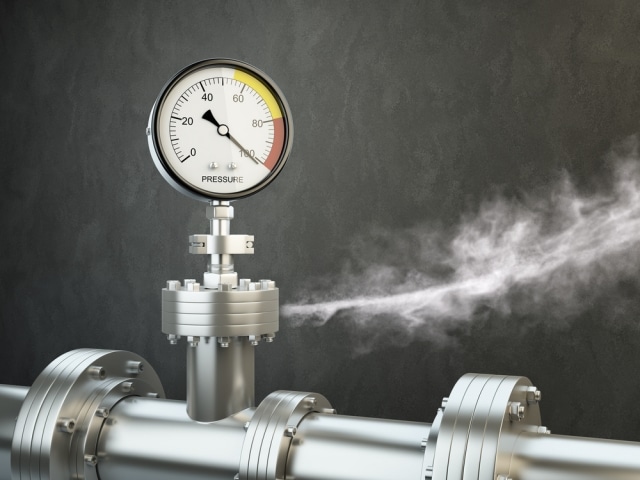This is a guest post by Joe Romm, republished with permission from the original on Climate Progress.
Satellite observations of huge oil and gas basins in East Texas and North Dakota confirm staggering 9 and 10 percent leakage rates of heat-trapping methane. “In conclusion,” researchers write, “at the current methane loss rates, a net climate benefit on all time frames owing to tapping unconventional resources in the analyzed tight formations is unlikely.”
In short, fracking speeds up human-caused climate change, thanks to methane leaks alone. Remember, natural gas is mostly methane, (CH4), a super-potent greenhouse gas, which traps 86 times as much heat as CO2 over a 20-year period. So even small leaks in the natural gas production and delivery system can have a large climate impact — enough to gut the entire benefit of switching from coal-fired power to gas.
Back in February, we reported that the climate will likely be ruined already well past most of our lifespans by the time natural gas has a net climate benefit. That was based on a study in Science called “Methane Leaks from North American Natural Gas Systems” reviewing more than 200 earlier studies. It concluded that natural gas leakage rates were about 5.4 percent.
The new study used satellites to look at actual “methane emissions for two of the fastest growing production regions in the United States, the Bakken and Eagle Ford formations,” between the periods 2006–2008 and 2009–2011. They found leakages rates of 10.1 percent and 9.1 percent respectively!
Recall the key figure from the 2012 study, Alvarez et al:
Figure: Maximum life-cycle natural gas leak rate as a function of the number of years needed to achieve net climate benefits after switching from coal power to natural gas. The three curves represent: single emissions pulses (dotted lines); the service life of a power plant, 50 years (dashed lines); and a permanent fleet conversion (solid lines).
If the leakage rate were 5.4 percent, replacing a fleet of coal plants with gas plants would be worse for the climate for 5 decades. If the leakage rate were 7.6 percent, fracked gas is worse for a century!
But it’s even worse than that for fracking. Alvarez et al. used old figures for the global warming potential (GWP) of methane. Last year, the IPCC And it’s even worse than that for fracked gas, which, in the real world, doesn’t just displace coal, it also displaces nuclear power, renewable energy, and energy efficiency. Recent studies have confirmed that — even if methane leakage were zero percent — “increased natural gas use for electricity will not substantially reduce US GHG [greenhouse gas] emissions, and by delaying deployment of renewable energy technologies, may actually exacerbate the climate change problem in the long term.”
Bottom line: fracking speeds up global warming and has no net climate benefit whatsoever in any timescale that matters to humanity. Perhaps it is time to stop squandering tens of billions of dollars on it while rendering billions of gallons of water unfit for human consumption.
Photo credit: Shutterstock.
Subscribe to our newsletter
Stay up to date with DeSmog news and alerts







